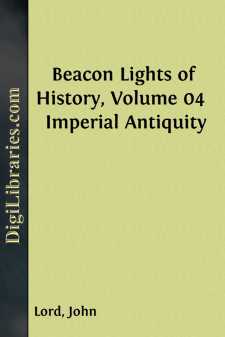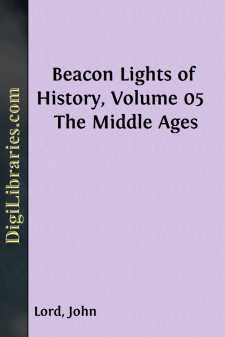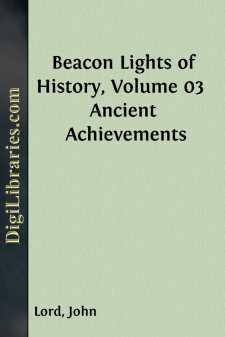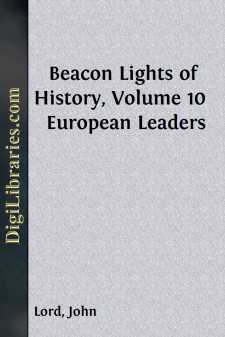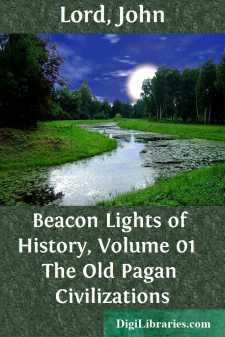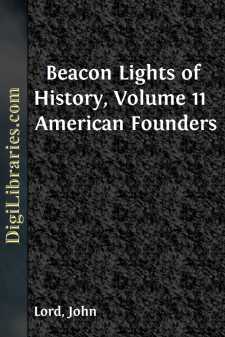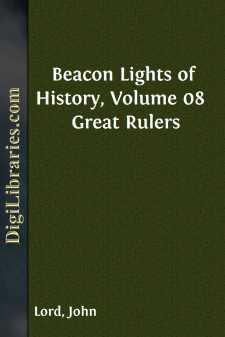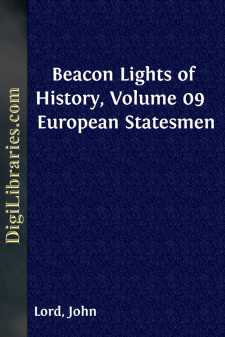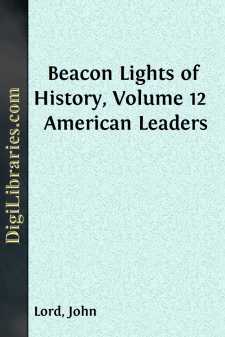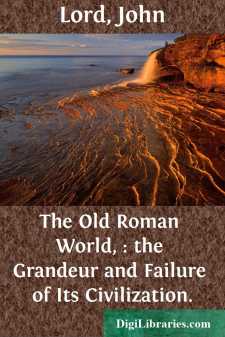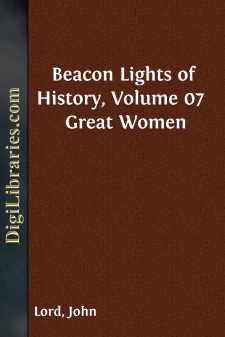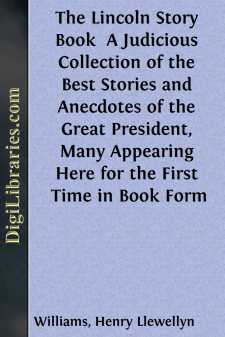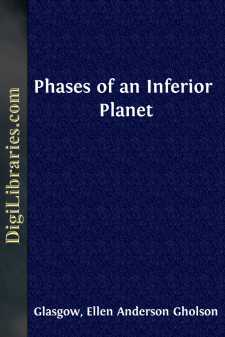Categories
- Antiques & Collectibles 13
- Architecture 36
- Art 48
- Bibles 22
- Biography & Autobiography 816
- Body, Mind & Spirit 145
- Business & Economics 28
- Children's Books 18
- Children's Fiction 14
- Computers 4
- Cooking 94
- Crafts & Hobbies 4
- Drama 346
- Education 58
- Family & Relationships 59
- Fiction 11831
- Foreign Language Study 3
- Games 19
- Gardening 17
- Health & Fitness 34
- History 1378
- House & Home 1
- Humor 147
- Juvenile Fiction 1873
- Juvenile Nonfiction 202
- Language Arts & Disciplines 89
- Law 16
- Literary Collections 686
- Literary Criticism 179
- Mathematics 13
- Medical 41
- Music 40
- Nature 179
- Non-Classifiable 1768
- Performing Arts 7
- Periodicals 1453
- Philosophy 66
- Photography 2
- Poetry 897
- Political Science 203
- Psychology 45
- Reference 154
- Religion 516
- Science 126
- Self-Help 86
- Social Science 82
- Sports & Recreation 34
- Study Aids 3
- Technology & Engineering 59
- Transportation 23
- Travel 463
- True Crime 29
Our website is made possible by displaying online advertisements to our visitors.
Please consider supporting us by disabling your ad blocker.
Beacon Lights of History, Volume 04 Imperial Antiquity
by: John Lord
Description:
Excerpt
CHRYSOSTOM.
A.D. 347-407.
SACRED ELOQUENCE.
The first great moral force, after martyrdom, which aroused the degenerate people of the old Roman world from the torpor and egotism and sensuality which were preparing the way for violence and ruin, was the Christian pulpit. Sacred eloquence, then, as impersonated in Chrysostom, "the golden-mouthed," will be the subject of this Lecture, for it was by the "foolishness of preaching" that a new spiritual influence went forth to save a dying world. Chrysostom was not, indeed, the first great preacher of the new doctrines which were destined to win such mighty triumphs, but he was the most distinguished of the pulpit orators of the early Church. Yet even he is buried in his magnificent cause. Who can estimate the influence of the pulpit for fifteen hundred years in the various countries of Christendom? Who can grasp the range of its subjects and the dignity of its appeals? In ages even of ignorance and superstition it has been eloquent with themes of redemption and of a glorious immortality.
Eloquence has ever been admired and honored among all nations, especially among the Greeks. It was the handmaid of music and poetry when the divinity of mind was adored--perhaps with Pagan instincts, but still adored--as a birthright of genius, upon which no material estimate could be placed, since it came from the Gods, like physical beauty, and could neither be bought nor acquired. Long before Christianity declared its inspiring themes and brought peace and hope to oppressed millions, eloquence was a mighty power. But then it was secular and mundane; it pertained to the political and social aspects of States; it belonged to the Forum or the Senate; it was employed to save culprits, to kindle patriotic devotion, or to stimulate the sentiments of freedom and public virtue. Eloquence certainly did not belong to the priest. It was his province to propitiate the Deity with sacrifices, to surround himself with mysteries, to inspire awe by dazzling rites and emblems, to work on the imagination by symbols, splendid dresses, smoking incense, slaughtered beasts, grand temples. He was a man to conjure, not to fascinate; to kindle superstitious fears, not to inspire by thoughts which burn. The gift of tongues was reserved for rhetoricians, politicians, lawyers, and Sophists.
Now Christianity at once seized and appropriated the arts of eloquence as a means of spreading divine truth. Christianity ever has made use of all the arts and gifts and inventions of men to carry out the concealed purposes of the Deity. It was not intended that Christianity should always work by miracles, but also by appeals to the reason and conscience of mankind, and through the truths which had been supernaturally declared,--the required means to accomplish an end. Therefore, she enriched and dignified an art already admired and honored. She carried away in triumph the brightest ornament of the Pagan schools and placed it in the hands of her chosen ministers. So that the Christian pulpit soon began to rival the Forum in an eloquence which may be called artistic,--a natural power of moving men, allied with learning and culture and experience. Young men of family and fortune at last, like Gregory Nazianzen and Basil, prepared themselves in celebrated schools; for eloquence, though a gift, is impotent without study. See the labors of the most accomplished of the orators of Pagan antiquity. It was not enough for an ancient Greek to have natural gifts; he must train himself by the severest culture, mastering all knowledge, and learning how he could best adapt himself to those he designed to move. So when the gospel was left to do its own work on people's hearts, after supernatural influence is supposed to have been withdrawn, the Christian preachers, especially in the Grecian cities, found it expedient to avail themselves of that culture which the Greeks ever valued, even in degenerate times. Indeed, when has Christianity rejected learning and refinement? Paul, the most successful of the apostles, was also the most accomplished,--even as Moses, the most gifted man among the ancient Jews, was also the most learned. It is a great mistake to suppose that those venerated Fathers, who swayed by their learning and eloquence the Christian world, were merely saints. They were the intellectual giants of their day, living in courts, and associating with the wise, the mighty, and the noble. And nearly all of them were great preachers: Cyprian, Athanasius, Augustine, Ambrose, and even Leo, if they yielded to Origen and Jerome in learning, were yet very polished, cultivated men, accustomed to all the refinements which grace and dignify society.
But the eloquence of these bishops and orators was rendered potent by vastly grander themes than those which had been dwelt upon by Pericles, or Demosthenes, or Cicero, and enlarged by an amazing depth of new subjects, transcending in dignity all and everything on which the ancient orators had discoursed or discussed. The bishop, while he baptized believers, and administered the symbolic bread and wine, also taught the people, explained to them the mysteries, enforced upon them their duties, appealed to their intellects and hearts and consciences, consoled them in their afflictions, stimulated their hopes, aroused their fears, and kindled their devotions. He plunged fearlessly into every subject which had a bearing on religious life. While he stood before them clad in the robes of priestly office, holding in his hands the consecrated elements which told of their redemption, and offering up to God before the altar prayers in their behalf, he also ascended the pulpit to speak of life and death in all their sublime relations. "There was nothing touching," says Talfourd, "in the instability of fortune, in the fragility of loveliness, in the mutability of mortal friendship, or the decay of systems, nor in the fall of States and empires, which he did not present, to give humiliating ideas of worldly grandeur. Nor was there anything heroic in sacrifice, or grand in conflict, or sublime in danger,--nothing in the loftiness of the soul's aspirations, nothing of the glorious promises of everlasting life,--which he did not dwell upon to stimulate the transported crowds who hung upon his lips. It was his duty and his privilege," continues this eloquent and Christian lawyer, "to dwell on the older history of the world, on the beautiful simplicities of patriarchal life, on the stern and marvellous story of the Hebrews, on the glorious visions of the prophets, on the songs of the inspired melodists, on the countless beauties of the Scriptures, on the character and teachings and mission of the Saviour. It was his to trace the Spirit of the boundless and the eternal, faintly breathing in every part of the mystic circle of superstition,--unquenched even amidst the most barbarous rites of savage tribes, and in the cold and beautiful shapes of Grecian mould."
How different this eloquence from that of the expiring nations! Their eloquence is sad, sounding like the tocsin of departed glories, protesting earnestly--but without effect--against those corruptions which it was too late to heal. How touching the eloquence of Demosthenes, pointing out the dangers of the State, and appealing to liberty, when liberty had fled. In vain his impassioned appeals to men insensible to elevated sentiments. He sang the death-song of departed greatness without the possibility of a new creation. He spoke to audiences cultivated indeed, but divided, enervated, embittered, infatuated, incapable of self-sacrifice, among whom liberty was a mere tradition and patriotism a dream; and he spoke in vain. Nor could Cicero--still more accomplished, if not so impassioned--kindle among the degenerate Romans the ancient spirit which had fled when demagogues began their reign. How mournful was the eloquence of this great patriot, this experienced statesman, this wise philosopher, who, in spite of all his weaknesses, was admired and honored by all who spoke the Latin tongue. But had he spoken with the tongue of an archangel it would have been all the same, on any worldly or political subject. The old sentiments had died out. Faith was extinguished amid universal scepticism and indifference. He had no material to work on. The birthright of ancient heroes had been sold for a mess of pottage, and this he knew; and therefore with his last philippics he bowed his venerable head, and prepared himself for the sword of the executioner, which he accepted as an inevitable necessity.
These great orators appealed to traditions, to sentiments which had passed away, to glories which could not possibly return; and they spoke in vain. All they could do was to utter their manly and noble protests, and die, with the dispiriting and hopeless feeling that the seeds of ruin, planted in a soil of corruption, would soon bear their wretched fruits,--even violence and destruction.
But the orators who preached a new religion of regenerating forces were more cheerful. They knew that these forces would save the world, whatever the depth of ignominy, wretchedness, and despair. Their eloquence was never sad and hopeless, but triumphant, jubilant, overpowering. It kindled the fires of an intense enthusiasm. It kindled an enthusiasm not based on the conquest of the earth, but on the conquests of the soul, on the never-fading glories of immortality, on the ever-increasing power of the kingdom of Christ. The new orators did not preach liberty, or the glories of material life, or the majesty of man, or even patriotism, but Salvation,--the future destinies of the soul. A new arena of eloquence was entered; a new class of orators arose, who discoursed on subjects of transcending comfort to the poor and miserable. They made political slavery of no account in comparison with the eternal redemption and happiness promised in the future state. The old institutions could not be saved: perhaps the orators did not care to save them; they were not worth saving; they were rotten to the core. But new institutions should arise upon their ruins; creation should succeed destruction; melodious birth-songs should be heard above the despairing death-songs. There should be a new heaven and a new earth, in which should dwell righteousness; and the Prince of Peace-- Prophet, Priest, and King--should reign therein forever and ever.
Of the great preachers who appeared in thousands of pulpits in the fourth century,--after Christianity was seated on the throne of the Roman world, and before it had sunk into the eclipse which barbaric spoliations and papal usurpations, and general ignorance, madness, and violence produced,--there was one at Antioch (the seat of the old Greco-Asiatic civilization, alike refined, voluptuous, and intellectual) who was making a mighty stir and creating a mighty fame. This was Chrysostom, whose name has been a synonym of eloquence for more than fifteen hundred years. His father, named Secundus, was a man of high military rank; his mother, Anthusa, was a woman of rare Christian graces,--as endeared to the Church as Monica, the sainted mother of Augustine; or Nonna, the mother of Gregory Nazianzen. And it is a pleasing fact to record, that most of the great Fathers received the first impulse to their memorable careers from the influence of pious mothers; thereby showing the true destiny and glory of women, as the guardians and instructors of their children, more eager for their salvation than ambitious of worldly distinction. Buried in the blessed sanctities and certitudes of home,--if this can be called a burial,--those Christian women could forego the dangerous fascination of society and the vanity of being enrolled among its leaders. Anthusa so fortified the faith of her yet unconverted son by her wise and affectionate counsels, that she did not fear to intrust him to the teachings of Libanius, the Pagan rhetorician, deeming an accomplished education as great an ornament to a Christian gentleman as were the good principles she had instilled a support in dangerous temptation. Her son John--for that was his baptismal and only name--was trained in all the learning of the schools, and, like so many of the illustrious of our world, made in his youth a wonderful proficiency. He was precocious, like Cicero, like Abélard, like Pascal, like Pitt, like Macaulay, and Stuart Mill; and like them he panted for distinction and fame. The most common path to greatness for high-born youth, then as now, was the profession of the law. But the practice of this honorable profession did not, unfortunately, at least in Antioch, correspond with its theory. Chrysostom (as we will call him, though he did not receive this appellation until some centuries after his death) was soon disgusted and disappointed with the ordinary avocations of the Forum,--its low standard of virtue, and its diversion of what is ennobling in the pure fountains of natural justice into the turbid and polluted channels of deceit, chicanery, and fraud; its abandonment to usurious calculations and tricks of learned and legalized jugglery, by which the end of law itself was baffled and its advocates alone enriched. But what else could be expected of lawyers in those days and in that wicked city, or even in any city of the whole Empire, when justice was practically a marketable commodity; when one half of the whole population were slaves; when the circus and the theatre were as necessary as the bath; when only the rich and fortunate were held in honor; when provincial governments were sold to the highest bidder; when effeminate favorites were the grand chamberlains of emperors; when fanatical mobs rendered all order a mockery; when the greed for money was the master passion of the people; when utility was the watchword of philosophy, and material gains the end and object of education; when public misfortunes were treated with the levity of atheistic science; when private sorrows, miseries, and sufferings had no retreat and no shelter; when conjugal infelicities were scarcely a reproach; when divorces were granted on the most frivolous pretexts; when men became monks from despair of finding women of virtue for wives; and when everything indicated a rapid approach of some grand catastrophe which should mingle, in indiscriminate ruin, the masters and the slaves of a corrupt and prostrate world?
Such was society, and such the signs of the times, when Chrysostom began the practice of the law at Antioch,--perhaps the wickedest city of the whole Empire. His eyes speedily were opened. He could not sleep, for grief and disgust; he could not embark on a profession which then, at least, added to the evils it professed to cure; he began to tremble for his higher interests; he abandoned the Forum forever; he fled as from a city of destruction; he sought solitude, meditation, and prayer, and joined those monks who lived in cells, beyond the precincts of the doomed city. The ardent, the enthusiastic, the cultivated, the conscientious, the lofty Chrysostom fraternized with the visionary inhabitants of the desert, speculated with them on the mystic theogonies of the East, discoursed with them on the origin of evil, studied with them the Christian mysteries, fasted with them, prayed with them, slept like them on a bed of straw, denied himself his accustomed luxuries, abandoning himself to alternate transports of grief and sublime enthusiasm, now contending with the demons who sought his destruction; then soaring to comprehend the Man-God,--the Word made flesh, the incarnation of the divine Logos,--and the still more subtile questions pertaining to the nature and distinctions of the Trinity.
Such were the forms and modes of his conversion,--somewhat different from the experience of Augustine or of Luther, yet not less real and permanent. Those days were the happiest of his life. He had leisure and he had enthusiasm. He desired neither riches nor honors, but the peace of a forgiven soul He was a monk without losing his humanity; a philosopher without losing his taste for the Bible; a Christian without repudiating the learning of the schools. But the influence of early education, his practical yet speculative intellect, his inextinguishable sympathies, his desire for usefulness, and possibly an unsubdued ambition to exert a greater influence would not allow him wholly to bury himself. He made long visits to the friends and habitations he had left, in order to stimulate their faith, relieve their necessities, and encourage them in works of benevolence; leading a life of alternate study and active philanthropy,--learning from the accomplished Diodorus the historical mode of interpreting the Scriptures, and from the profound Theodorus the systems of ancient philosophy. Thus did he train himself for his future labors, and lay the foundation for his future greatness. It was thus he accumulated those intellectual treasures which he afterwards lavished at the imperial court.
But his health at last gave way; and who can wonder? Who can long thrive amid exhausting studies on root dinners and ascetic severities? He was obliged to leave his cave, where he had dwelt six blessed years; and the bishop of Antioch, who knew his merits, pressed him into the active service of the Church, and ordained him deacon,--for the hierarchy of the Church was then established, whatever may have been the original distinctions of the clergy. With these we have nothing to do. But it does not appear that he preached as yet to the people, but performed like other deacons the humble office of reader, leaving to priests and bishops the higher duties of a public teacher. It was impossible, however, for a man of his piety and his gifts, his melodious voice, his extensive learning, and his impressive manners long to remain in a subordinate post. He was accordingly ordained a presbyter, A.D. 381, by Bishop Flavian, in the spacious basilica of Antioch, and the active labors of his life began at the age of thirty-four.
Many were the priests associated with him in that great central metropolitan church; "but upon him was laid the duty of especially preaching to the people,--the most important function recognized by the early Church. He generally preached twice in the week, on Saturday and Sunday mornings, often at break of day, in consequence of the heat of the sun. And such was his popularity and unrivalled power, that the bishop, it is said, often allowed him to finish what he had himself begun. His listeners would crowd around his pulpit, and even interrupt his teachings by their applause. They were unwearied, though they stood generally beyond an hour. His elocution, his gestures, and his matter were alike enchanting." Like Bernard, his very voice would melt to tears. It was music singing divine philosophy; it was harmony clothing the richest moral wisdom with the most glowing style. Never, since the palmy days of Greece, had her astonishing language been wielded by such a master. He was an artist, if sacred eloquence does not disdain that word. The people were electrified by the invectives of an Athenian orator, and moved by the exhortations of a Christian apostle. In majesty and solemnity the ascetic preacher was a Jewish prophet delivering to kings the unwelcome messages of divine Omnipotence. In grace of manner and elegance of language he was the persuasive advocate of the ancient Forum; in earnestness and unction he has been rivalled only by Savonarola; in dignity and learning he may remind us of Bossuet; in his simplicity and orthodoxy he was the worthy successor of him who preached at the day of Pentecost. He realized the perfection which sacred eloquence attained, but to which Pagan art has vainly aspired,--a charm and a won


